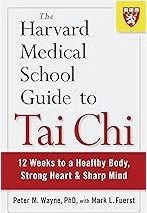- HOME
- ABOUT
- TEACHERS & THERAPISTS
- GETTING STARTED
- RESEARCH
- Acupuncture
- Anti-Aging Benefits of Qigong
- Qigong for Autism and Children with Disabilities
- Bioenergetic Effects of Qigong
- Bioenergetics
- Biophotonics
- Breathing
- Qigong for Cancer
- Dissertations and Original Research
- Electromagnetic Pollution
- Emerging Science of Bioelectromagnetic Medicine
- Energy Psychology
- Epigenetics and Psychoneuroimmunology
- Food Is Medicine
- Harvard Medical School Recommends Qigong and Tai Chi
- Integrative Medicine and Medical Qigong Therapy
- Interoception
- Meditation
- Non-linear Dynamics of Homeostasis, Function, and Consciousness
- Placebo
- Qigong Science
- Qigong Today
- Scientific Basis of Qigong and Energy Medicine
- RESOURCES
- Classes and Online Qigong
- Cubicles and Corporations
- Qigong in Education
- Government and Qigong
- Newsletters, Blogs, Magazines, Social and Professional Networking
- Podcasts, Videos, and DVDs
- Qigong and Tai Chi in Prisons
- Qigong Health Care
- Related Links
- Spiritual Qigong
- United States Government Endorses Qigong and Tai Chi
- Yoga and Qigong
- BLOG
- STORE
- SEARCH
- DONATIONS
- HOME
- ABOUT
- TEACHERS & THERAPISTS
- GETTING STARTED
- RESEARCH
-
RESOURCES
- Classes and Online Qigong
- Cubicles and Corporations
- Qigong in Education
- Government and Qigong
- Newsletters, Blogs, Magazines, Social and Professional Networking
- Podcasts, Videos, and DVDs
- Qigong and Tai Chi in Prisons
- Qigong Health Care
- Related Links
- Spiritual Qigong
- United States Government Endorses Qigong and Tai Chi
- Yoga and Qigong
- BLOG
- STORE
-


